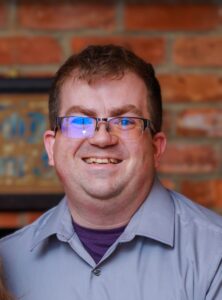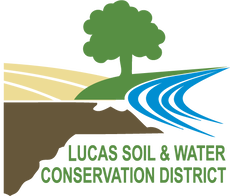
Lucas Soil and Water Conservation District is represented by Matthew Browne.
Originally from Sandusky, Ohio, Matthew graduated from Bowling Green State University in 2012, receiving a B.S. in Environmental Science. He currently lives in Rossford, Ohio with his wife and daughter. Matthew currently works for the Lucas Soil & Water Conservation District as a their H2Ohio Program Technician. Whether he’s working with an agricultural producer or urban landowner, his job duties primarily focus on the administration of conservation programs and helping people get environmental best management practices on the ground. Out of work Matthew is an avid reader, gamer, and admirer of nature; often taking walks in the neighborhood or local parks with his wife Emily and daughter Eleanor.
Learn More about Lucas Soil and Water Conservation District
Lucas Soil and Water Conservation District is a participating Navigator organization in Protecting the Great Lakes Through a Farm Navigator Network project.


